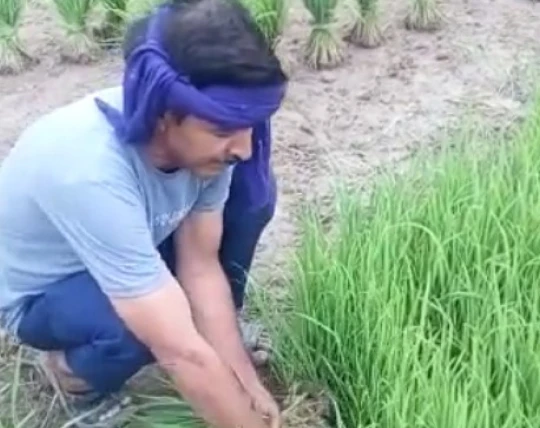Dalauda region farmers cultivate a wide variety of organic and sustainably grown crops, such as Wheat, Mustard, Flaxseed, Lentil, Fenugreek, and more, which are then fine-graded and quality-tested before being distributed.


Nature Bio Foods’ Dalauda project is located in Mandsaur district, Madhya Pradesh, India. Dalauda is a peaceful and prosperous village with a bright future. The village is well-equipped to meet the challenges of the 21st century and is poised to become a major centre of economic activity in the region. Dalauda is a well-connected village, with good road and rail links to the rest of the country. The village is also home to a number of educational institutions, including a government school, a private school, and a college. The region is also home to a number of historical and religious sites, such as the Dalauda Fort and the Dalauda Jain Temple.
NBF’s Project Dalauda
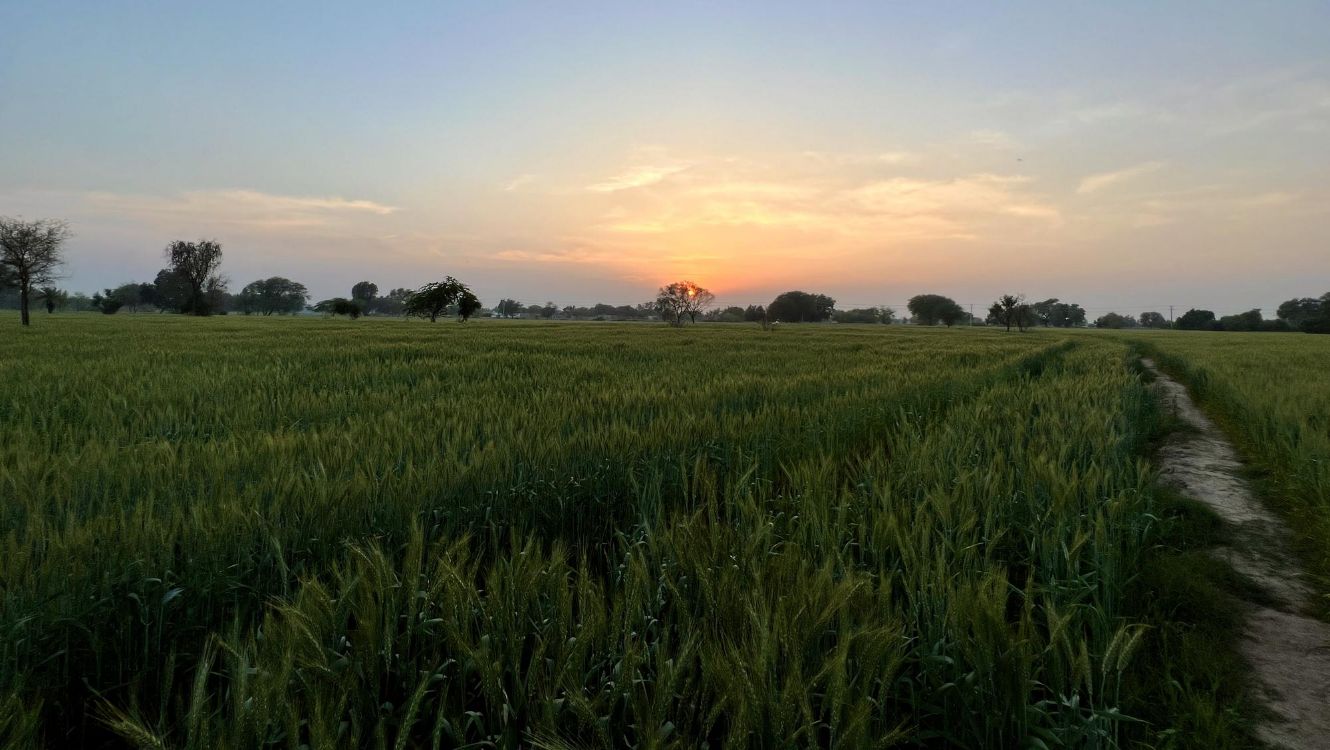

Location of the Project
NBF’s Dalauda project is located in Dalauda village in Mandsaur district, Madhya Pradesh, India. It is located about 15 km from the district headquarters of Mandsaur. The village has a population of about 5,000 people. The main occupation of the people of Dalauda is agriculture. The village is also home to a number of small businesses, such as shops, restaurants, and schools. The Dalauda region is known for its fertile soil and its production of organic wheat, rice, and cotton.
Coordinates: The approximate coordinates for Dalauda are Latitude: 23° 56′ 55″ N
and Longitude: 75° 6′ 19″ E.

Organic Certification

With Naturland certification, Nature Bio Foods’ Dalauda project demonstrates its commitment to organic agriculture and to improving small-scale farmers’ lives. Naturland’s certification is accessible to farmers with limited land, and they collaborate with producer associations that encompass numerous individual producers. Through their alliance with Naturland, NBF empowers small-scale farmers to embrace sustainable and organic farming methods, enabling them to access high-value markets for their agricultural products. This partnership not only benefits the environment but also supports the livelihoods of small-scale farmers. By promoting sustainable and organic agriculture, NBF enhances the income and resilience of farmers in the Dalauda region, while contributing to global endeavours for a more sustainable food system.

Nature Bio Foods Dalauda project is certified organic by the National Program for Organic Production (NPOP), which is the regulatory body responsible for implementing organic certification in India. To obtain NPOP certification, the Dalauda project underwent a rigorous certification process that involved a thorough inspection and evaluation of the entire organic farming system, from the farm to the processing and distribution facilities.
The NPOP certification program is designed to ensure that organic produce is grown and processed using strict organic standards that prohibit the use of synthetic pesticides, fertilizers, and genetically modified organisms (GMOs). It also ensures that the farmers and processors adhere to strict guidelines for sustainability, environmental protection, and social responsibility.
The NPOP certification of the Dalauda Project is a testament to Nature Bio Foods’ commitment to promoting sustainable and ethical agriculture practices in India. It provides assurance to customers that the organic produce sourced from the Dalauda project is of the highest quality and meets the stringent standards set by the NPOP.
Everything you need to know about Dalauda
Dalauda is a town in Mandsaur district of Madhya Pradesh, India. It is located on the banks of the Chambal River, about 150 kilometers from the state capital, Bhopal. Dalauda is a major agricultural market and is known for its production of wheat, rice, and cotton. The town is also home to a number of sugar mills and factories.
Dalauda is a popular tourist destination, with a number of historical and religious sites. The town is home to the Pashupatinath Temple, a Hindu temple dedicated to Lord Shiva. The temple is said to be over 1,000 years old and is one of the most important pilgrimage sites in Madhya Pradesh. Dalauda is also home to the Gandhi Sagar Dam, a large dam that provides irrigation and drinking water to a large area.
Dalauda is a well-connected town, with good road and rail links. The town is served by the Mandsaur Railway Station and is connected to major cities in India by road.
Agricultural Characteristics
The region benefits from a favorable climate for agriculture. It experiences a tropical monsoon climate, with distinct wet and dry seasons. The monsoon rains, typically occurring from June to September, provide ample water for crop growth. The temperature variations throughout the year are conducive to the cultivation of a variety of crops.
The fertile agricultural land in Dalauda supports a diverse range of crops. Farmers in the region cultivate both food crops and cash crops. Food crops include wheat, rice, maize, millets, pulses, and vegetables. Cash crops such as cotton, soybeans, groundnuts, sugarcane, and oilseeds also contribute significantly to the agricultural output of Dalauda.
Agricultural practices in Dalauda involve both rain-fed farming and irrigation methods. Depending on the availability of water resources, farmers may rely on traditional methods such as wells and tanks or utilize modern irrigation techniques like tube wells and canal irrigation. Efficient water management plays a crucial role in maximizing crop yields.
Soil Profile

Dalauda, located in the state of Madhya Pradesh, India, has predominantly agricultural land. The region’s soil characteristics can vary, but the following information provides a general overview of the soils found in the area:

Black Soil (Regur Soil): Dalauda is known for its black soil, locally referred to as “Regur soil” or “black cotton soil.” It is rich in clay content and is highly fertile. Black soil has good water retention capacity and is suitable for growing crops like cotton, soybeans, wheat, millets, and pulses.

Sandy Soil: In some parts of Dalauda, sandy soils can be found. Sandy soil has larger particles, low water-holding capacity, and low fertility. However, it provides good drainage, making it suitable for crops that prefer well-drained conditions, such as maize, groundnuts, and pulses.

Loamy Soil: Loamy soil, a mixture of sand, silt, and clay, can also be found in Dalauda. Loam soils are generally fertile, retain moisture well, and have good drainage. This type of soil is suitable for a wide range of crops, including wheat, gram, vegetables, and oilseeds.
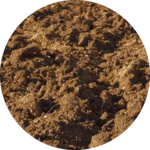
Alluvial Soil: Along the river banks of Chambal and its tributaries, alluvial soils can be found. These soils are formed by the deposition of silt, sand, and clay carried by the rivers. Alluvial soil is generally fertile and suitable for a wide range of crops, including wheat, rice, sugarcane, and vegetables.
Climate Condition
Temp.
Minimum

15 °C
(Dec-Jan)
Maximum

48 °C
(May-June)
Humidity
Relative Humidity

43%
Rainfall
When compared with winter, the summers have much more rainfall.
Average Rainfall

108.65 mm
Seasons
There are mainly three seasons.

Summer
(Mar-June)

Rainy
(July-Sep)

Winter
(Oct-Feb)
Farm Water Availability
In Dalauda, the availability of water resources for farming plays a crucial role in agricultural activities. The region relies on a combination of rainfall, surface water, and groundwater sources to meet the water requirements of agricultural practices.
Dalauda experiences a tropical monsoon climate, with a significant portion of its annual precipitation occurring during the monsoon season, typically from June to September. The monsoon rains provide vital water supply for crops, replenishing the soil moisture and supporting their growth. However, the distribution and adequacy of rainfall can vary from year to year, impacting agricultural productivity.
Apart from rainfall, surface water sources such as rivers, canals, and reservoirs contribute to the availability of water for irrigation. The Chambal River and its tributaries flow through Dalauda , providing a reliable source of water for agriculture. Farmers in the region often rely on canal irrigation systems that distribute water from these sources to irrigate their fields.
Groundwater is another important water resource in Dalauda. Farmers utilize wells and tube wells to tap into the underground aquifers and extract water for irrigation purposes. The depth and quality of groundwater can vary across different areas of Dalauda , requiring careful management and monitoring to ensure sustainable use.
Efficient water management practices are crucial in Dalauda to optimize water availability and minimize wastage. Farmers employ various techniques such as drip irrigation, sprinkler irrigation, and water-saving technologies to utilize water resources effectively. Additionally, the government promotes water conservation and provides support for water storage infrastructure like tanks and ponds.
Nature of Farmers
The farmers in Dalauda are deeply connected to the land and have a strong sense of attachment to their agricultural practices. They have inherited a rich agricultural knowledge from previous generations and have adapted their techniques to modern farming practices. These farmers possess a deep understanding of the local climate, soil conditions, and crop cycles, allowing them to make informed decisions about which crops to cultivate and when. Their expertise in traditional farming methods is often combined with the adoption of new technologies and agricultural advancements, reflecting their openness to innovation and continuous learning. Despite the uncertainties and risks associated with agriculture, the farmers in Dalauda demonstrate remarkable resilience, perseverance, and a never-give-up attitude, showing their commitment to their land and the livelihood it provides.
The farming community in Dalauda is known for its strong sense of community and mutual support. Farmers often come together to help each other during peak farming seasons, such as sowing or harvesting, through practices like “sahyog” or cooperative farming. They form cooperatives and farmer producer organizations to collectively address challenges, share resources, and enhance their bargaining power. These collaborative efforts not only strengthen the farming community but also contribute to the socio-economic development of the region. The farmers of Dalauda actively participate in local agricultural forums, workshops, and training programs to exchange knowledge, discuss challenges, and explore opportunities. Their proactive engagement in agricultural extension services and government initiatives reflects their commitment to continuous improvement and the overall progress of the farming sector in Dalauda.

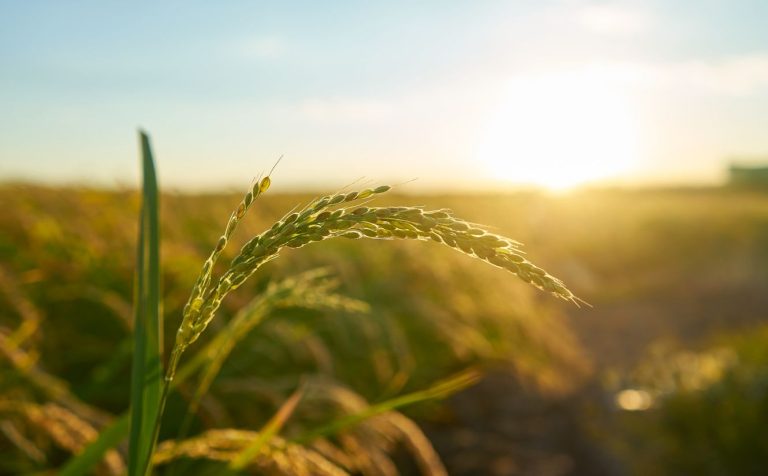

Growing Conditions
Dalauda benefits from a favorable climate for crop cultivation. The region experiences a tropical monsoon climate, characterized by hot summers and moderate winters. The monsoon season, typically from June to September, brings significant rainfall, providing ample moisture for crop growth. This rainfall pattern supports the cultivation of a variety of crops, including cereals like wheat and maize, oilseeds, pulses, and vegetables. The moderate winter temperatures allow for the successful growth of crops like mustard, gram, and vegetables, contributing to the agricultural diversity of the region.
The soil conditions in Dalauda play a crucial role in determining the suitability of crops. The region is known for its black soil, also known as “Regur soil” or “black cotton soil,” which is rich in clay content and highly fertile. This type of soil retains moisture well and is suitable for crops like cotton, soybeans, wheat, and pulses. In addition to black soil, Dalauda also has alluvial soil along the riverbanks, which is fertile and suitable for crops like rice, sugarcane, and vegetables. Farmers in Dalauda also cultivate crops in sandy and loamy soils, although these require proper irrigation and soil management practices. The availability of water resources, including rainfall and surface water from rivers and canals, along with groundwater sources, further supports crop growth in the region.
Crop Details
Kharif
Soybean, Maize, Black Gram
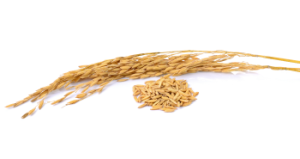
Rabi
Wheat, Mustard, Lentil, Coriander, Flaxseed, Fenugreeck, Chickpea, Tarmera, Esabgal etc.
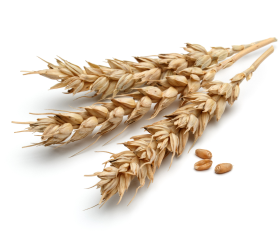
Statistics
NBF Supply Chain

NBF Supply Chain
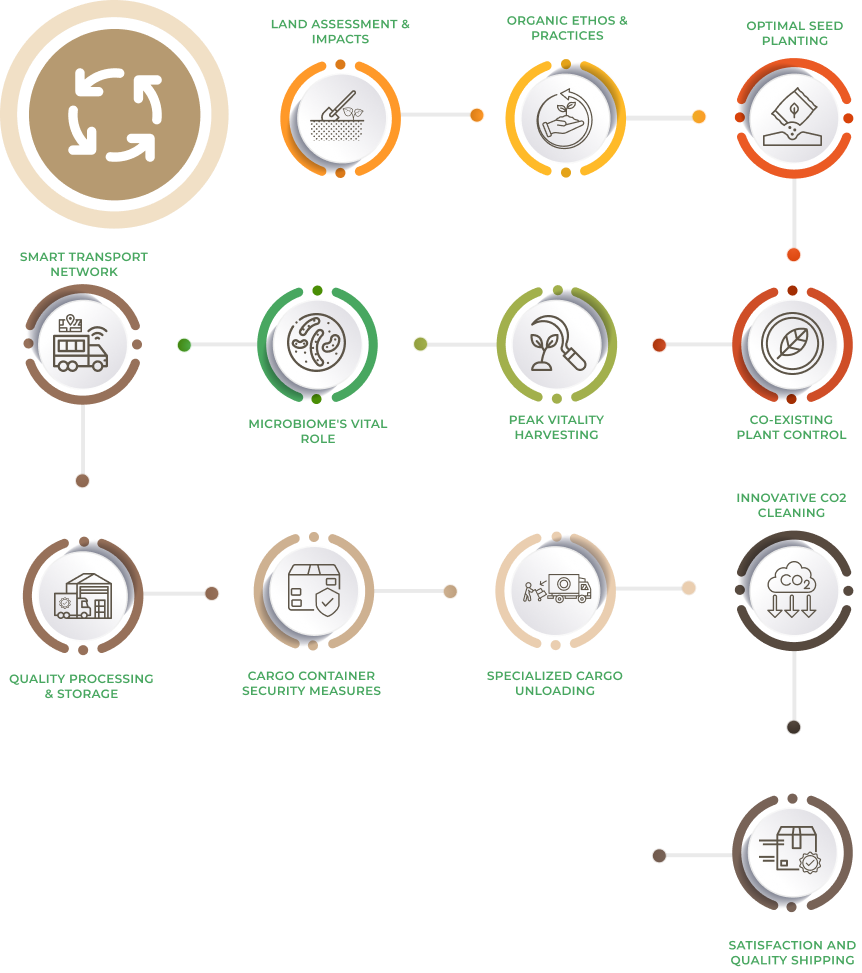
How to reach the region?
Dalauda does not have an airport or railway station of its own. Dalauda is well-connected by road to nearby cities like Mandsaur and Ratlam. To reach Dalauda in Mandsaur, you can follow these general directions:

By Train
The nearest railway station to Dalauda is Mandsaur Railway Station, which is well-connected to various cities in India. From the railway station, you can hire a taxi or take a local bus to reach Dalauda, which is about 34 kilometers away.

By Road
Dalauda is well-connected to nearby towns and cities through road networks. You can reach Mandsaur by bus or private vehicle and then proceed to Dalauda, which is approximately 34 kilometers away. You can hire a taxi or take a local bus from Mandsaur to reach Dalauda.

By Air
The nearest airport to Dalauda is Devi Ahilya Bai Holkar Airport in Indore, which is approximately 138 kilometers away. From the airport, you can hire a taxi or take a bus to reach Dalauda.

Places to Visit


Elevation
It has an average elevation of roughly 910 meters.


River
The Gosthani River flows through the caves, which are located near NBF’s Araku Valley project in the Ananthagiri hill range.


Soil
Lateritic, black, sandy and red soil
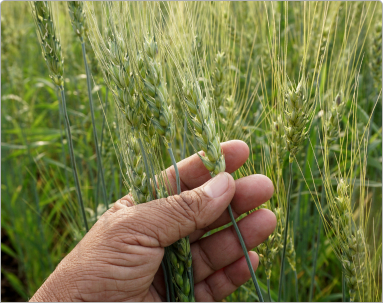

Crop
Major crop: Turmeric, Chia, Foxtail Milets
Sustainability Efforts
Economic
| Women's Empowerment through Entrepreneurial Training Programs |
234 |
|
| Empowering Young Women: Career Counseling for Future Success |
345 |
|
| Craftsmanship Unleashed: Skill Development in Artisanal Handicrafts |
221 |
|
Social
| Nourishing the Future: Workshop on Child Nutrition and Well-being |
776 |
|
| Guiding the Leaders of Tomorrow: Mentoring Programs for Students |
673 |
|
Environmental
| Cultivating the Earth: Advanced Training in Soil Regeneration |
126 |
|
| Towards a Plastic-Free Future: Comprehensive Reduce and Reuse Initiatives |
354 |
|
| Preserving Our Lifeline: Campaigns for Water Conservation and Stewardship |
875 |
|
| Agriculture in Harmony with Nature: Organic Farming workshops |
232 |
|
| Clean Village, Healthy Village: Promoting Cleanliness and Sanitation at the Grassroots Level |
533 |
|
Impact

Impact of Our Farmers
The impact of our farmers is significant in enhancing soil fertility through various methods such as crop rotation, cover cropping, reduced tillage, and application of compost. These practices reduce fuel-intensive tillage, resulting in carbon sequestration, decreasing greenhouse gases, and reversing climate change. In addition, they can improve soil structure and reduce the possibility of soil erosion.

Difference Our People Are Making
The difference our organization is making is by converting land from conventional management to organic management, managing the entire surrounding system for biodiversity and sustainability, and using alternative sources of nutrients such as crop rotation, residue management, and organic manures. We provide complete biological inputs to our crops, and our teams supervise and manage weed and pest control through better management practices, physical and cultural means.

Contribution by Our Customers
Our customers’ contribution is vital in promoting food safety and environmental issues. The concern for their health, the environment, and worldwide crises has increased exponentially. Organic agriculture has become the only option for many consumers. Simply by consuming organic produce, they are contributing to the overall health of the planet and making an impact towards sustainability.








